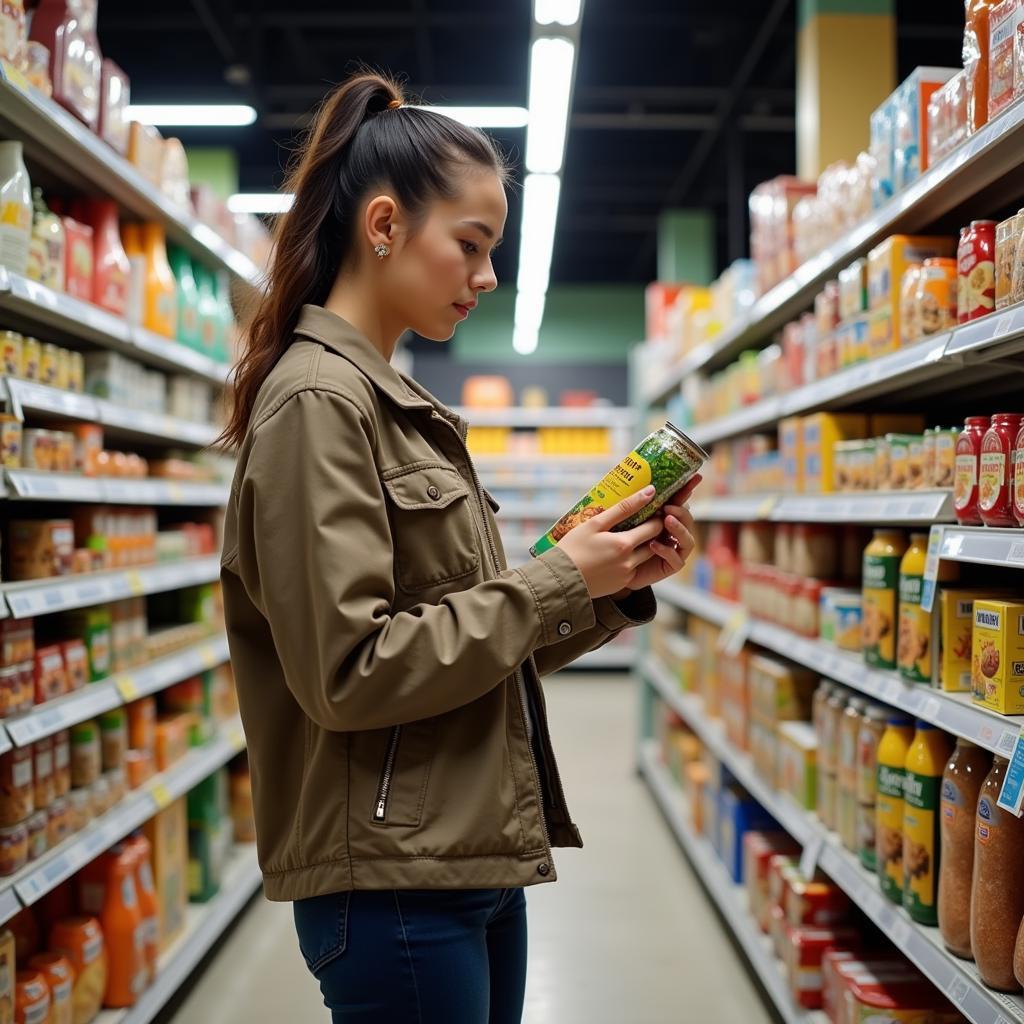The term “Deforest Food” might seem strange at first, but it represents a critical issue connecting our plates to the planet’s health. It encompasses the food choices we make that contribute, directly or indirectly, to deforestation around the world. From the coffee in our mugs to the ingredients in our favorite snacks, our demand for certain foods drives a chain reaction that impacts forests and the ecosystems they support.
Unmasking the Culprits: Which Foods Drive Deforestation?
While the connection might not be immediately obvious, our hunger for certain products fuels the destruction of forests at an alarming rate. Here are some of the biggest culprits:
- Beef: The demand for cheap beef often leads to the clearing of vast swathes of land, particularly in the Amazon rainforest, for cattle ranching. This practice is a major driver of deforestation, destroying vital habitats and releasing greenhouse gases in the process.
- Soy: While often associated with vegetarian diets, a significant portion of soy production goes towards feeding livestock. This demand for soy, for both animal feed and human consumption, contributes to deforestation in critical areas like the Amazon.
- Palm Oil: Found in countless processed foods and cosmetics, palm oil is a highly efficient crop. However, its production often comes at the cost of rainforests, particularly in Southeast Asia, where vast areas are cleared for palm oil plantations.
- Chocolate: The global craving for chocolate has a bitter side. Cocoa production, particularly in West Africa, is linked to deforestation as farmers clear forests to make way for cocoa farms.
The Domino Effect: Why Should We Care About Deforest Food?
The impact of deforestation extends far beyond the loss of trees. It’s a complex issue with far-reaching consequences for the planet and all its inhabitants:
- Climate Change: Forests play a vital role in regulating the Earth’s climate by absorbing carbon dioxide. Deforestation releases this stored carbon into the atmosphere, contributing to global warming.
- Biodiversity Loss: Rainforests are home to an estimated 80% of the world’s terrestrial biodiversity. Deforestation destroys the habitats of countless plant and animal species, pushing many towards extinction.
- Water Cycles: Forests play a crucial role in regulating water cycles, influencing rainfall patterns and preventing soil erosion. Deforestation disrupts these cycles, leading to droughts, floods, and decreased water quality.
- Indigenous Communities: Many indigenous communities around the world depend on forests for their livelihoods, culture, and spiritual well-being. Deforestation threatens their way of life and displaces communities from their ancestral lands.
Breaking the Chain: How to Make Deforestation-Free Choices
While the problem might seem daunting, our everyday choices can make a difference in the fight against deforestation. Here are some practical steps you can take:
- Reduce Your Meat Consumption: Consider reducing your meat intake, especially red meat. Opting for plant-based meals more often can significantly lower your impact on forests.
- Choose Sustainable Palm Oil: Look for products containing sustainably sourced palm oil, certified by organizations like the Roundtable on Sustainable Palm Oil (RSPO).
- Support Sustainable Chocolate: Seek out chocolate brands committed to deforestation-free cocoa sourcing. Look for certifications like Fair Trade, Rainforest Alliance, or UTZ.
- Be a Conscious Consumer: Read labels, research brands, and make informed choices about the products you buy. Support companies committed to ethical sourcing and sustainable practices.
 Making Sustainable Food Choices
Making Sustainable Food Choices
Beyond Individual Action: A Call for Collective Responsibility
Addressing deforestation requires a multi-faceted approach involving governments, corporations, and individuals alike:
- Government Regulations: Stronger government policies and regulations are crucial to halt deforestation. This includes protecting forests, promoting sustainable land-use practices, and enforcing stricter laws against illegal logging.
- Corporate Accountability: Companies need to take responsibility for their supply chains and ensure their products are deforestation-free. This involves sourcing raw materials sustainably, investing in traceability systems, and supporting smallholder farmers.
- Consumer Awareness: Raising awareness about the link between our food choices and deforestation is key. Educating consumers about the impact of their decisions and empowering them to make sustainable choices is crucial.
From Deforestation to Reforestation: Planting Seeds of Hope
The fight against deforestation is not just about preventing further loss; it’s also about restoring what’s been damaged. Reforestation efforts, alongside sustainable forest management practices, are essential for restoring ecosystems, mitigating climate change, and preserving biodiversity.
A Future Where Food and Forests Thrive Together
“Deforest food” is a term that should make us pause and reflect on the impact of our dietary choices. By understanding the connection between our plates and the planet, we can make conscious decisions that support both our health and the health of our forests. It’s time to embrace a future where food and forests thrive together, ensuring a sustainable and vibrant planet for generations to come.
FAQs About Deforest Food
1. What can I do to help stop deforestation?
You can make a difference by reducing your consumption of deforestation-linked products like beef, palm oil, and unsustainable chocolate. Support companies committed to sustainable practices and advocate for stronger environmental policies.
2. Is all palm oil bad?
Not necessarily. Look for products containing sustainably sourced palm oil, certified by organizations like the RSPO.
3. How can I be sure a company is truly sustainable?
Research brands, look for certifications, and support companies transparent about their supply chains and environmental practices.
4. What is the role of governments in combating deforestation?
Governments play a crucial role in enacting and enforcing regulations, protecting forests, and promoting sustainable land-use practices.
5. Can we reverse the effects of deforestation?
While restoring damaged ecosystems takes time and effort, reforestation initiatives, combined with sustainable practices, offer hope for the future.
Need Help Navigating the World of Sustainable Food Choices?
Contact our team at Mina Cones Food. We’re here to answer your questions, provide guidance, and support your journey towards mindful eating.
Phone: 02437655121
Email: minacones@gmail.com
Address: 3PGH+8R9, ĐT70A, thôn Trung, Bắc Từ Liêm, Hà Nội, Việt Nam
Our dedicated customer care team is available 24/7 to assist you.